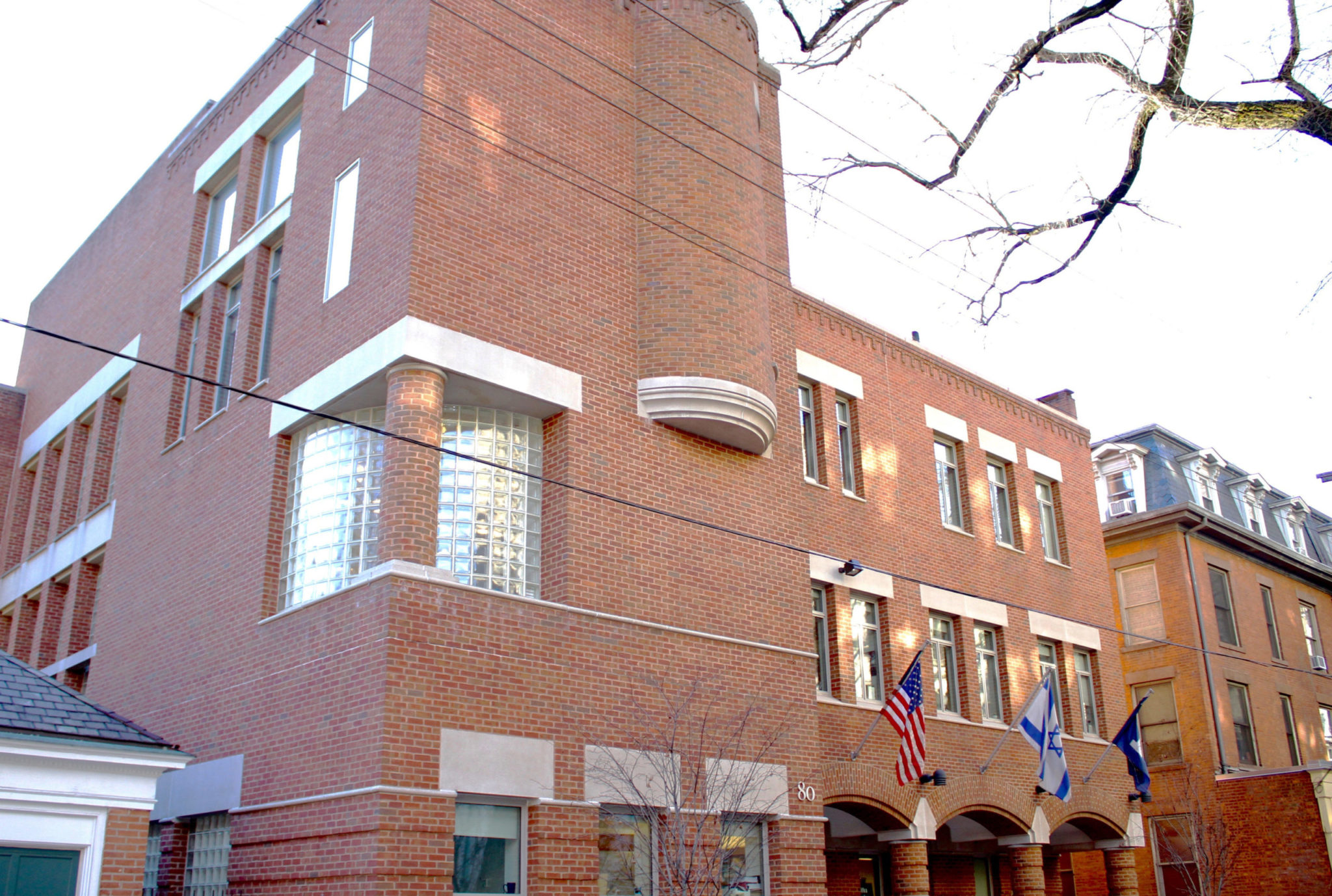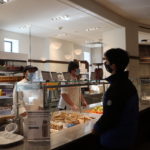Yale Slifka Center and Chabad celebrate Passover through online and in-person gatherings
Two Yale Rabbis and a co-president of Yale Hillel Student Board spoke to the News about this year’s Passover celebrations.

Skakel McCooey, Contributing Photographer
Jewish Yalies celebrated Passover through remote and in-person celebrations held from March 27 to April 4.
Small Seders, online services and community gatherings were held throughout the Jewish community at Yale. The Joseph Slifka Center for Jewish Life hosted online services and handed out to-go Seder boxes, and Chabad at Yale hosted small in-person Seders and services. Two Yale rabbis and a Yale Hillel Student Board co-president spoke with the News about their week of events and this year’s Passover experience.
Rabbi Jason Rubenstein, the Howard M. Holtzmann Jewish chaplain at Yale, spoke about the Slifka Center’s ability to reach out and connect with more students this year in comparison to last year, when few students were still at Yale and in the New Haven area due to the start of the pandemic.
“The idea of being able to set up shop and have over 100 people come by and pick up matzo — that’s so much more than we could do last year,” Rubenstein said. “It felt kind of redemptive in a certain way.”
In a normal year, the Slifka Center will provide around 350 Seder meals, running their operation out of the main dining hall in Silliman College. Usually, the first night will host around 100 people. In addition, the center usually hosts affinity Seders, such as an LGBTQ Seder, one for Jews of color, one run by Alpha Epsilon Pi and one with an environmental justice theme.
Rubenstein said that this year, in contrast, they held online Zoom Seders, connected through students’ written work and offered dozens Seder “to-go” boxes, filled with a range of Seder materials and kosher for Passover holiday foods, such as grape juice and matzo ball soup.
“One of our really powerful ways of connecting has actually been through the written word, and the new Hillel student board organized a lovely set of student reflections to introduce themselves,” Rubenstein said. “When you read someone’s writing, you feel like you get to know them, and you feel their presence.”
The main online Slifka gathering was on Saturday, March 27, at the start of Passover. It was followed by other small in-person Seders outdoors with various COVID-19 rules and restrictions put in place, such as mandatory masks, no singing and a University health leader present at each one.
Ruthie Davis ’23, a Yale Hillel Student Board co-president, spoke about the hybrid format of the Pesach, or Passover, programming at Slifka this year and her gratitude for having students and faculty back on campus in “a world more used to trying to balance [safety] with being able to have some semblance of community and human interaction.”
“A handout of Seder supplies and food for over a hundred people in New Haven … reached undergraduates, graduate students and community members,” Davis said, “Both providing the material supplies and an opportunity to come together, in this weird pandemic sort of way, with the larger community — running into people they might not have seen for a year all while waiting to pick up their supplies.”
While she is traditionally observant and did not attend online services both this Passover and last year, Davis mentioned the shift in feeling this year from one of “loss and loneliness” to one with more hope, lending a “different valence” to the holiday.
Rabbi Meir Chaim Posner, the Jewish life advisor of Chabad at Yale, mentioned a similar shift in the meaning of Passover for him personally this year.
“This was probably one of our most meaningful Passovers that we’ve had in a long time,” Posner said. “It was a family environment where we felt that everyone was in it together. We really connected in a very deep way, that sense of community … and we were fortunate to be part of it.”
Posner spent the holiday with his family at Chabad — located on Lynwood Place — with students, holding all events in person in their outdoor patio space. Chabad has a rigorous screening system that functions through texts to aid with contact tracing in case an attendee’s COVID-19 test comes back positive.
Posner also told the News that Chabad held two Seders, one on Saturday at the start of Passover and one on the following Sunday, to meet capacity limits. In addition, Chabad hosted smaller services, including a Friday night shabbat and other lunches throughout the holiday.
“We probably reached about 100 students [and] there was clearly a deeper appreciation for in-person and face-to-face relationships,” Posner said. “Just being able to interact with, celebrate and share throughout Passover was something that really impacted [some of these students] on a very profound level.”
This Passover, Chabad also helped with handling and distributing the Slifka Center’s to-go Seder boxes, as the Slifka Center is currently under construction and did not have the refrigeration facilities to accommodate all of the pre-packaged meals.
Posner said that the coming together of students to lead services is a way for students to strengthen their individual connections with their Jewish faith.
“With myself and with the students that we interact with, the pandemic was really an opportunity for folks to reflect on their Jewish identity on their terms in a way where they have an opportunity to own it,” Posner said. “They now have that opportunity to define what Jewish identity, Jewish practice and Jewish tradition mean to them in a real way … so that has and will continue to guide us in the future, and I think that’s one of the amazing things that came out of the pandemic experience.”
Similarly, Davis told the News that she hopes that by Passover next year, the Jewish community will be able to gather more normally and go back to larger Sedarim and celebrations.
Davis said that Pesach holidays celebrate both the highs and lows of Jewish history and that the theme of connectedness is ingrained in religious practice and in the Haggadah, a text recited at Seders on the first two nights of Passover. Davis continued to express that this year, the pandemic has created an even greater sense of unity.
“Something about celebrating in the pandemic brings home the feeling of unity with the vicissitudes of Jewish history, an awareness that no matter what else we are going through, the Jewish people has had Pesach each year for thousands of years,” Davis said.
In a similar sentiment, Rubenstein said that the image of the children of Israel in Egypt on the first Passover, “huddled fearfully in their homes as this destructive force rages across the world,” is evocative of the past year.
As Yale’s Passover celebrations came to a close, Rubenstein also maintained hope for the return to normal in-person Seders and services in the coming year.
“The last line in the Haggadah is ‘next year in Jerusalem’ [and last year] our line was ‘next year in person,” Rubenstein said. “So there actually is a partial fulfillment of that hope from last year and the hope the pandemic is behind us, more or less.”
The Slifka Center is located at 80 Wall St.
Amelia Lower | amelia.lower@yale.edu








